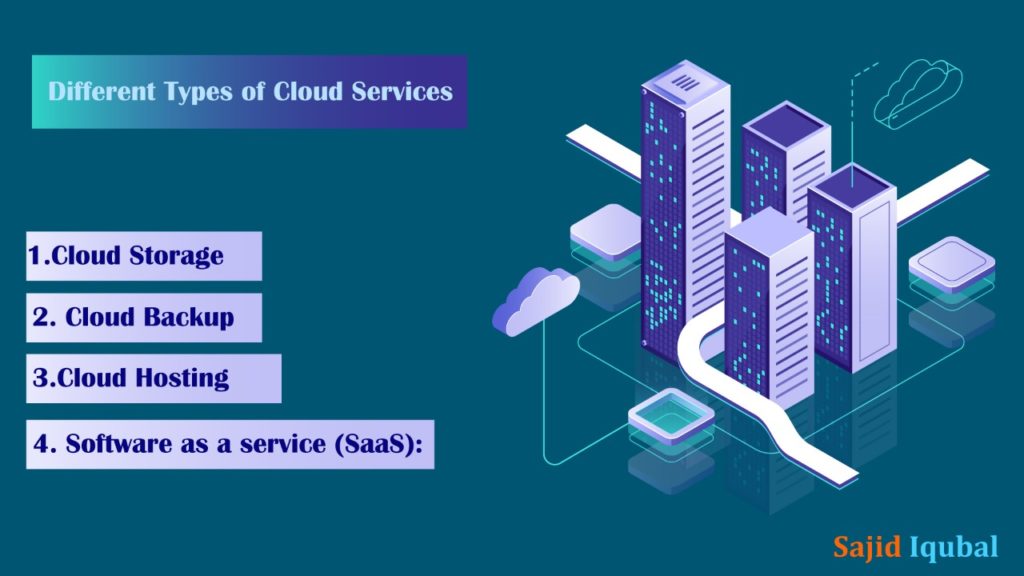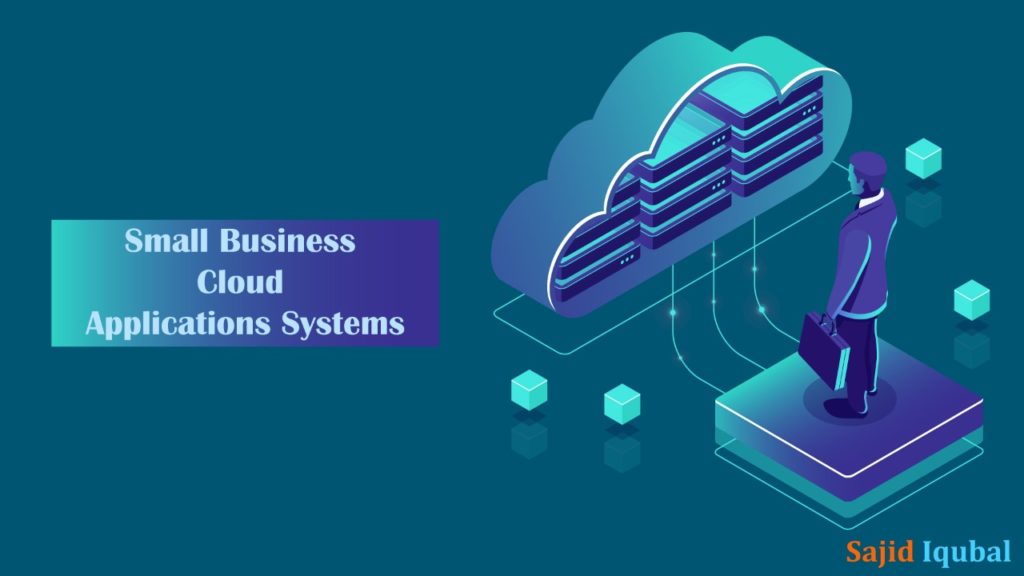Cloud computing has facilitated many companies to be managed more effectively on a remote server by implementing broadband internet. You already use some cloud storage level, whether your company relies on Dropbox to store data, uses Slack to promote company communication. Your small business can leverage cloud computing to streamline activities with an in-depth analysis of the concept.
Cloud storage offers access from anywhere, any time on any mobile device to enterprise data and applications—all at an affordable price relative to the expense of running in-house servers.
The cloud offers mobile access to data for small businesses and allows them to be more competitive in the market. According to research, up to 60 per cent of small businesses will rely on the cloud for storage data by 2022.
Small Business Cloud Applications Systems
Cloud apps are available from desktop and mobile devices and are browser-based. Vendors deliver cloud-based starter services suitable for entrepreneurs and sole proprietorships for about $10 a month, including invoicing, inventory valuation, and simple reporting.

In today’s evolving business world, small business owners must know what they need, whether they’re on laptops, tablets or mobiles—or in the workplace, on the field or the highway. Wherever they have internet service, cloud computing allows users access to data.
Android or Apple smartphones are compliant with cloud-based accounting applications that allow users to access their accounting details, send invoices, and track expenses anywhere. With their cloud services, accounting software vendors can provide better benefits and improvements than traditional bookkeeping technology, and can potentially save time and effort for your business.
Different Types of Cloud Services:
1. Cloud Storage: For daily access, these applications store and back up your data. You can also transfer and synchronize files across devices.
2. Cloud Backup: Cloud storage and cloud backup, which seem synonymous, cloud backup applications are meant to be a failsafe solution when the server crash, cyber-attack or other data loss happens to your company.
3. Software as a service (SaaS): To provide a service, SaaS solutions use the internet platform. For instance, Office 365 and Google Apps are examples of SaaS application. SaaS solutions may also be referred to as a platform for service.
4. Cloud Hosting: Multiple kinds of information exchange, such as messaging services, web applications hosting, web-based telecommunications systems and data storage, are enabled by these solutions.
The Benefits of Cloud Computing Service for Small Business
By increasing productivity, improving teamwork, and promoting innovation, cloud computing saves businesses time and resources. Here are five significant benefits that small and medium-sized enterprises will understand from strategies for cloud computing:
Extremely Open Data –
Businesses use cloud storage for any compatible device to access data anywhere. Cloud computing application stores data on the internet, rather than information stored on your device or a server in your workplace. Data is accessible from a central web-based platform that provides access from any place with an internet connection to anyone with proper credentials.

Increases the Flexibility of a Small Business –
For businesses with increasing or fluctuating bandwidth demands, cloud-based services are perfect. It’s easy to scale up your cloud resources as your needs grow, drawing on the service provider’s remote servers. Similarly, flexibility is integrated into the service if you need to scale down.
This degree of agility will offer a real advantage over competitors to businesses using cloud computing-it is not unusual that CIOs and IT Directors rate ‘operational agility’ as a lead driver for cloud adoption.
Preserves Consistency among Users –
As several employees work on the same digital file, it’s easy to make mistakes. Since cloud-hosted databases remain at the same centralized location, data is synchronized between all devices automatically, which ensures that people use the most up-to-date version of files.
Requires Remote Programming –
Business owners rely on software that is not used at home regularly. Cloud computing services enable users to access all kinds of files and programs like they are in the workplace. This is because specialized software is also installed on company devices in the office. Cloud computing takes the workplace to the kitchen table by eliminating the entry barrier for workers to use their comfortable services, irrespective of where they are actually.
Easy Backup for Data –
Catastrophic loss of data can happen at any moment. If the loss results from natural catastrophes, power surges or hardware failure, the probability of bankruptcy of affected businesses is increased within the same year as data losses. And although most organizations have contingency plans, it helps to create additional contingencies. Small business owners can rest assured when using the cloud to store essential data, knowing that critical files are secured even if hardware fails.
Cost-effective –
It takes time, resources and skills to buy and maintain server equipment. Instead of building a self-specific server prone to downtimes, a cloud service providers store data for you without all significant drawbacks. Business-oriented cloud computing costs are always a monthly cost, but it is a manageable and predictable expense in specific ways.
Hardware System Cutbacks –
The handling of files, data backup and applications takes up a lot of storage space on workstations and servers. You can use the vendor’s servers to store such database for cloud computing.
Time Savings-
Cloud computing services are updated frequently so that you don’t have to waste time and resources on your own. This gives you the benefit of always getting access to the latest features and attributes of an application.
Additional Cloud Computing Services Advantages:
It is found that 60% of organizations surveyed state that most of their IT would be off-premise within two years. This is a major advantage for small enterprises and startups who rely on agility as their businesses grow.
Signing up for a cloud computing application is faster and easier than buying a server, fully operational, and installing and managing software. Using the cloud ensures you don’t have to purchase hardware and software continuously. You can focus your attention more on performance and human relations, which are successful for your small business.
Final Thought:
In your daily life, using the cloud is gradually becoming the latest technology. So, so many organizations are switching to the cloud. Cloud computing enhances performance, helps increase cash flow and has several other advantages. Cloud security is all about identifying the perfect vendors and introducing technology that focuses on authentication of identity and encryption of data.
The Cloud’s flexibility is to pay a nominal monthly fee and maintain a service or program the cloud service is responsible. You need to look deeper than pure cost performance factors to consider which small business cloud service provider is best for your business. The best cloud backup platform is the system that connects the development and reliability goals regardless of how disruptive they may be.